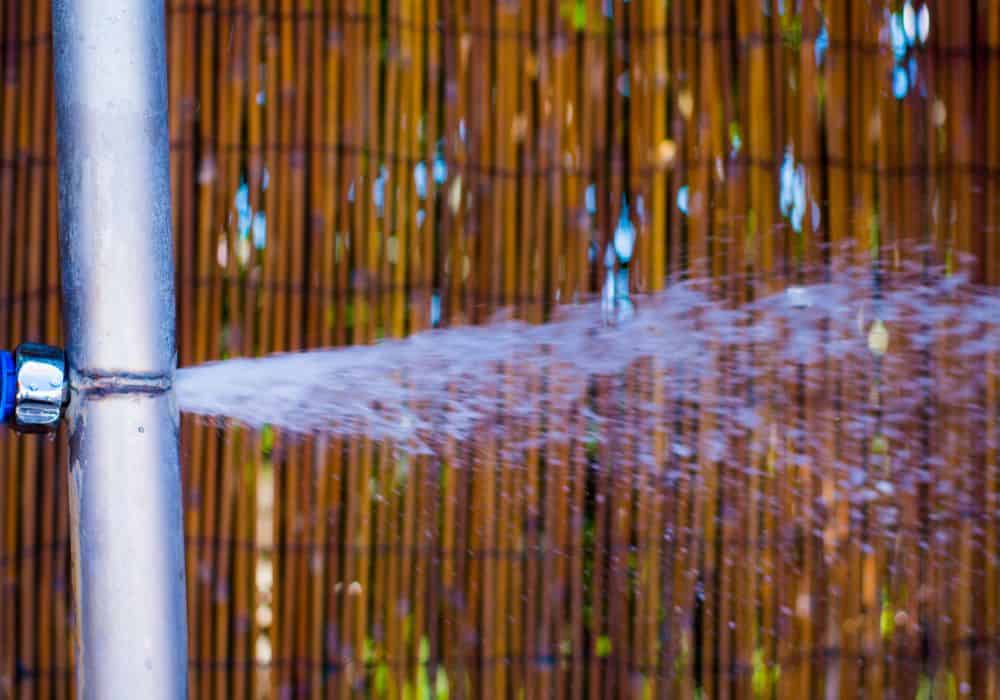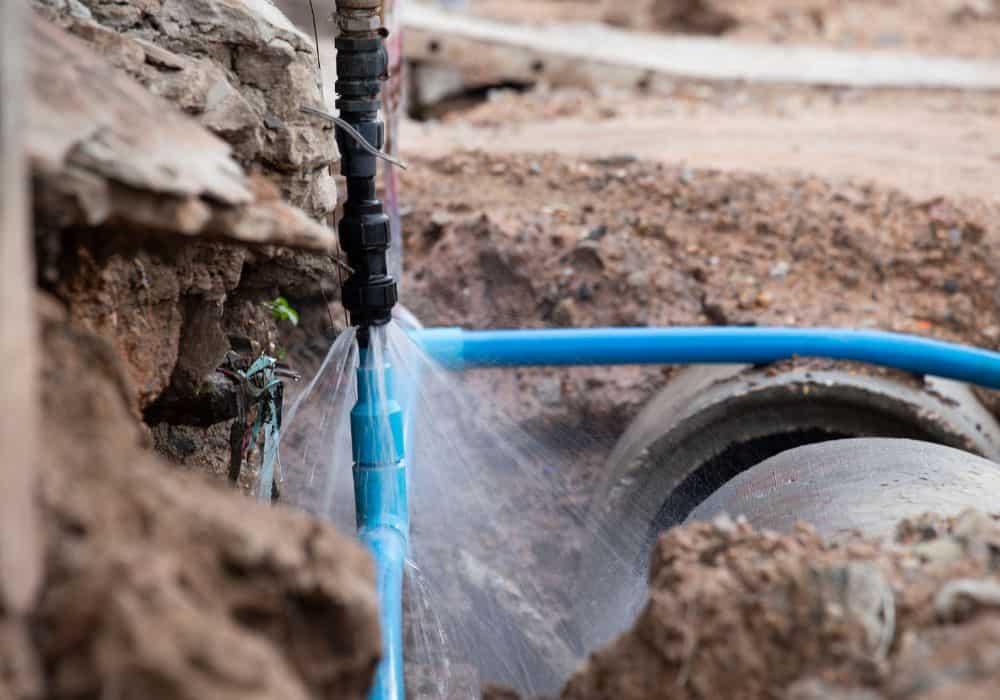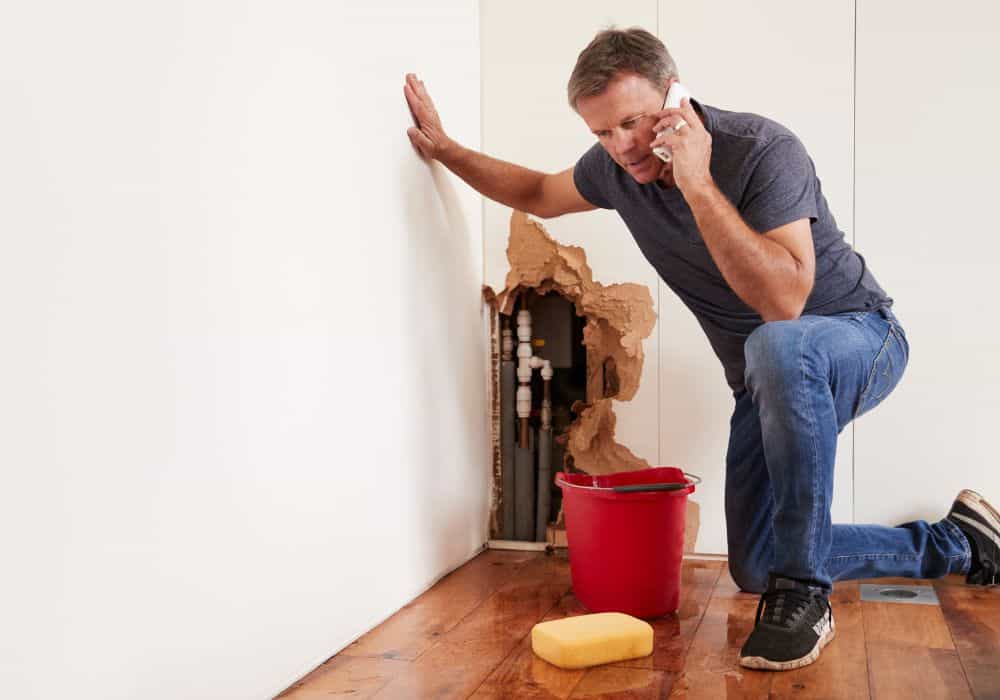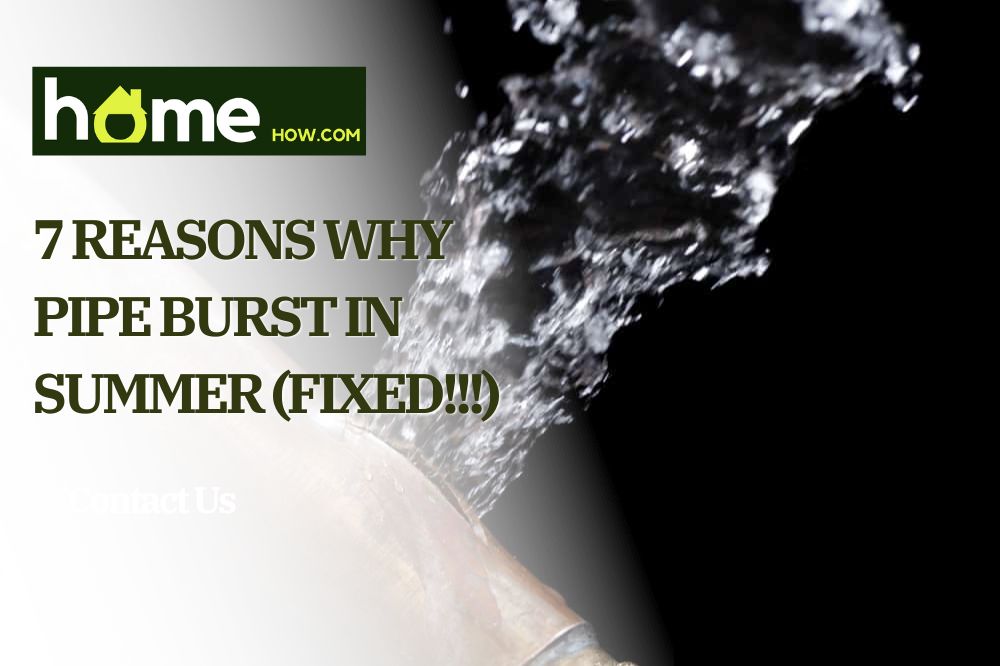The summer months are often the best part of the year. The sun is shining, the weather is glorious, and we’ve so many projects to keep us busy around our homes.
But the change in weather can bring an unavoidable problem our way – burst pipes. And there are several reasons why summer, in particular, is one of these annoying months where our water supply suffers.
Although wintertime and freezing temperatures are annoying, never underestimate the power of a hot, searing day on pipes inside your home and running outdoors.
Today we’re going to explain what makes your pipes vulnerable during the summer months. We’ll also suggest ways to protect your plumbing ahead of time to avoid costly repairs and get a head-start on potential leaks!
What Causes a Pipe to Burst in Summer?
Extreme temperature changes can significantly hamper any pipe’s structural integrity. But summertime, and hot temperatures, can affect your pipes in the following ways:
1. Sun rays
Direct sunlight can play havoc with pipes, causing them to expand. Not only can this cause pipes to disconnect from one another, but it can drastically reduce water pressure and cause material within the pipe to crack abruptly.
Additionally, UV rays can reduce your pipe#s natural resistance to physical impact and chemicals. The sunlight makes them brittle and weak, and substances that often don’t affect them can have a much more significant influence on them.
To combat this, you can paint exposed pipes in light-colored acrylic paint as a shield. You can also insulate your pipes.
Now, we know what you’re thinking; insulate them against heat? But insulation again forms a barrier against sunlight, preventing the pipe from expanding. Not only that, but it will also protect the pipe from other extreme changes in weather, like freezing, providing an all-year-round form of protection.
2. Growing trees
Summertime is a time when many plants and trees grow vigorously. Trees, in particular, can be a problem for pipes on two fronts.
Firstly, tall, overhanging trees can cause significant blockages to your plumbing system with fallen leaves, branches, and bird nests from above. Your vent pipe, in particular, can easily succumb to blockages.
Additionally, growing trees sprout expansive roots in all directions, which are incredibly difficult to anticipate. Though slow-growing, roots can and will penetrate all forms of piping they come in contact with. This causes cracks, fissures, and ruptures, or if above, can add unnecessary weight to pipes and crush them.
The solution to this problem is straightforward- mai9nstenace. That means ensuring tall, established trees are well pruned and any potential branches overhanging are cut firmly to the trunk.
For roots, you may want to remove or uproot young trees before they secure themselves and place them far away from any underground plumbing.

3. A build-up of rust and corrosion
Prolonged spells of hot, dry weather in the summer months can speed up the corrosion of pipes, especially metal pipes. This is because warm moisture promotes more oxidation, causing a green substance known as ‘patina’ to develop.
This green hue on pipes indicates that the pipe’s structural integrity is weakening. While it should not cause immediate alarm bells, this quick rusting process means that your plumbing suffers from warm weather.
Eventually, the corrosion will cause enough damage to spring a pinhole leak or loosen joints and seals between pipes. This water damage is especially prevalent in underground sewage lines, as nearby soil is warmer than normal and causes increased oxidation.
4. Little rainfall causes soil movement
While we might enjoy long sunshine with no rain, this can cause problems for your soil and, subsequently, your underground pipes.
This is because hot temperatures with little to no rainfall cause soil to shift and move. Pipes that are in such soil will move in tandem. Even slight changes in direction or elevation might be enough to spring a leak between lines or weaken its strength. The earth will move even more if the drought continues, gradually tearing apart your plumbing.
One of the precautions you can take to counteract this is changing your pipe’s material. Often, plastic PVC pipes have much more flexibility and can withstand more pressure from soil versus metal, rigid piping.
5. Increased hard water inside pipes
This problem is situational, depending mainly on the quality and quantity of water you use. Many homes have hard water, which contains high levels of natural minerals like calcium and magnesium.
Though safe for us to use, hard water is particularly harsh on our plumbing systems and continued hard water will eventually degrade the quality of pipes. Hard water often leads to a build-up of limescale, which will clog water pipes over time, causing them to rupture or spring a pinhole crack.
Because we typically use more water during the hot summer months, it stands to reason that an increased amount of hard water will be circulating in our plumbing systems.
To combat this, you may want to install a water softener directly into the entry point of your water system, protecting your pipes from structural damage by harsh chemicals and minerals.

6. Blocks and clogs from summertime activities
Summertime also brings other troubling chemicals and substances into the fray, which often go down our pipes. Because of the warm weather, we often have more barbeques and cookouts, which can lead to incredible levels of grease, oils, and other viscous substances going down our drains.
Grease can be particularly troublesome for our drain pipes because it sticks to the surfaces and gathers other forms of debris. In time, it forms a perfect clog that can cause already vulnerable pipes to seize up and burst.
Additionally, we regularly wash our cars, gardening equipment, outside walls, and more with harsh cleaning products to restore their shine and sparkle. But these chemicals can come at a cost, especially when we rinse them all downpipes.
These harsh chemicals can leach into pipes, corroding them quickly and reducing their longevity. If you want to preserve pipes and ensure they last as long as possible, avoid using them as trash cans to eliminate byproducts.
7. Old systems and renovations
While winter is a time of rest and hibernation, summer is a season of action. And often, this is when homeowners start home improvements, renovations, and DIY projects. This increased activity around the home can lead to improper plumbing installations, bursting pipes, and damaging existing systems from increased water pressure, seal leaks, and more.
If a pipe bursts during the summer and you recently tinkered with nearby lines, it might be time to revise your work or hire a plumber to correct your mistakes. Even nearby construction, such as new houses in your neighborhood, can cause vibrations in the ground that can affect pipes. Always watch for construction work and how it can potentially impact pipes.
If you live in an older house or are connected to older plumbing systems that have not been upgraded, the hot rise in temperature will affect your piping considerably more. Especially if your pipes are made of older materials such as cast iron, ductile iron, and galvanized steel, consider replacing your pipes, especially those exposed to the elements outside, with modern-day PVC, CPVC, and PEX.
Expert tips:
- If pipes burst and you are caught unprepared, you should first turn off your water supply. Assess where the leak is happening and the extent of the damage, and plan your repair.
- Insulating pipes is a great way to protect against hot and cold temperatures.
- Outside or exposed pipes should be painted with a light acrylic coating to protect against weather, including direct sunlight.
- Be careful of nearby construction work – heavy machinery can cause vibrations in the ground that can disconnect piping.
- Old, metal-based pipes like cast iron are more susceptible to rust and corrosion. Consider replacing these with modern-day plastics like CPVC and PEX.

Conclusion
Our pipes are an essential part of how our homes function. And although we often think of the cold winter as when they’re most likely to break because of freezing, the warm summer weather brings its own risks.
As we’ve shown, there are many ways the summer months can cause trouble with your plumbing, both internal and external. Factors that can influence the extent of the damage include the pipe’s material, how long the warm weather lasts, and if you’re proactive in bolstering your pipe’s resistances.
If you’re unsure how the summer months affect your plumbing, leave your questions below. But always remember:
- We often use much more water during the warm months. This can impact our pipe’s structural integrity, especially if the water quality is terrible.
- Always properly dispose of food wastes like grease, as well as chemical cleaning products, properly. Do not simply flush them down the drain.
- Gradually replace old systems with modern materials as soon as you can for peace of mind.
